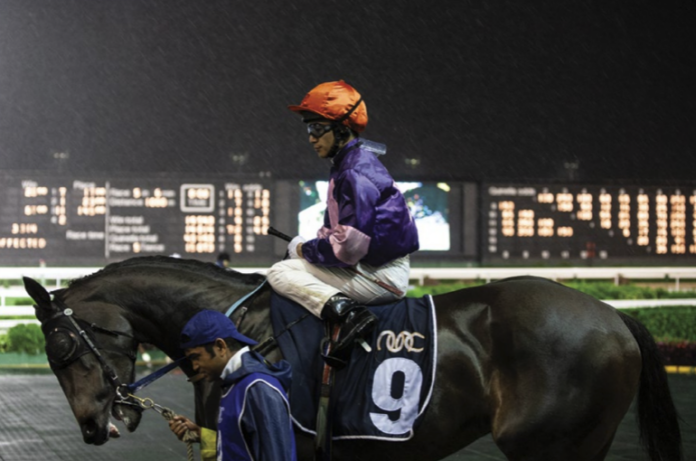
António Lobo Vilela is a lawyer based in Macau and the author of the Macau Gaming Law Book
The termination by mutual agreement of the concession contract for the exclusive operation of horse racing (allegedly at the request of the concessionaire, Macau Horse Racing Company Limited (MHRC), and on a date kept in the dark, somewhere “in the middle of last year”), and the consequent definitive closure of the Macau Jockey Club (following the announcement by the Secretary for Administration and Justice – who does not hold the gambling policy – that there will be no public tender for the award of a new concession), marks the end of a very long period in Macau’s history.
It is not widely known that horse racing has been a part of Macau’s history since the early days of Portuguese presence. In his travel diary, Peter Mundy, a British merchant trader, reported having witnessed a horse race in the central area of Macau in November 1634. The race occurred on a Sunday at an improvised racecourse “on a large artificially levelled ground” in front of São Domingos church.
Few people know that the Hong Kong Jockey Club (HKJC), a non-profit organisation and one of the oldest institutions in Hong Kong, established in 1844, has been as profitable as some Macau casino operators. In the financial year 2022-2023, HKJC’s proceeds amounted to HK$43.6 billion (US$5.57 billion), paying a total of HK$28.6 billion (US$3.65 billion) in taxes (betting duty, profit tax, and Lottery Fund contributions). This amount accounted for more than 4% of Hong Kong’s HK$700 billion (US$89.53 billion) budget for that financial year.
The termination of the concession contract (regardless of the form used, but never that of a “rescission of the public deed of the concession contract,” as it is referred to five times in the public deed titling the rescission of the concession contract) was not a bolt from the blue. It was expected in some circles and had already been suggested by the press last year, especially after the episode of the Macau government’s ban on horse imports.
The termination of the concession contract rekindles some mysteries. It continues puzzling that MHRC operated and insisted on operating the concession despite running at a (colossal) loss for years. During at least 20 years (1996–2016), MHRC was authorised to publish the balance sheet as a synopsis. In 2018, the concession period was (out of the blue) extended for 24 and a half years, keeping the annual rent of MOP$15 million (US$1.86 million) and with a (meagre) investment plan of MOP$1.5 billion (US$186 million) for the duration of the concession (i.e., until August 2042). When divided by the concession period granted, this investment plan represents only MOP$61.2 million (US$7.6 million) annually. In contrast, the HKJC donated almost five times the total value of that investment plan to charity in the financial year 2022-2023 alone (HK$7.3 billion/US$933.75 million).
It’s not the news of a dead-as-a-dodo MHRC that had “neither the art nor the ingenuity” to take advantage of a long-lasting concession on a plot of more than 404,000 square metres (according to the concession contract) that matters. What’s important is to understand the extent of the “in-depth study” (allegedly) carried out on the Macau government’s decision not to open a new concession for the operation of horse racing. Were the “six large integrated tourism and leisure companies” asked about their interest in developing a project for the Taipa Racecourse (which is delimited as a tourist and entertainment zone in the Macau SAR Master Plan 2020-2040), where maintaining horse meetings would genuinely help with economic diversification and the creation of the longed-for “world tourism and leisure centre”? And what about the HKJC, which, anchored in the National Equine Industry Development Plan (2020-2025) (jointly published by the PRC’s Ministry of Agriculture and Rural Affairs and General Administration of Sports), is developing a plan for world-class racing in the Greater Bay Area under the banner of the HKJC?
Although Macau is not the only jurisdiction to end horse racing (the Singapore Turf Club will hold its final race meeting on October 5, 2024, featuring the 100th Grand Singapore Gold Cup), in mainland China, the trend seems to be the opposite (hence, the horses already have a destination…). On the side of the angels, the HKJC signed a Framework Cooperation Agreement with the Guangzhou Municipal Government in 2021 to jointly develop the Guangzhou-Hong Kong Racing Economic Cluster. As part of this agreement, racing at the Conghua Racecourse in Guangzhou, Guangdong Province, is expected to commence in the 2025–26 season.
To be in the race and ride high, the path to diversification shouldn’t involve eliminating Macau’s (fading) cultural identity that makes it unique and different in the context of greater China. That would be backing the wrong horse!
























